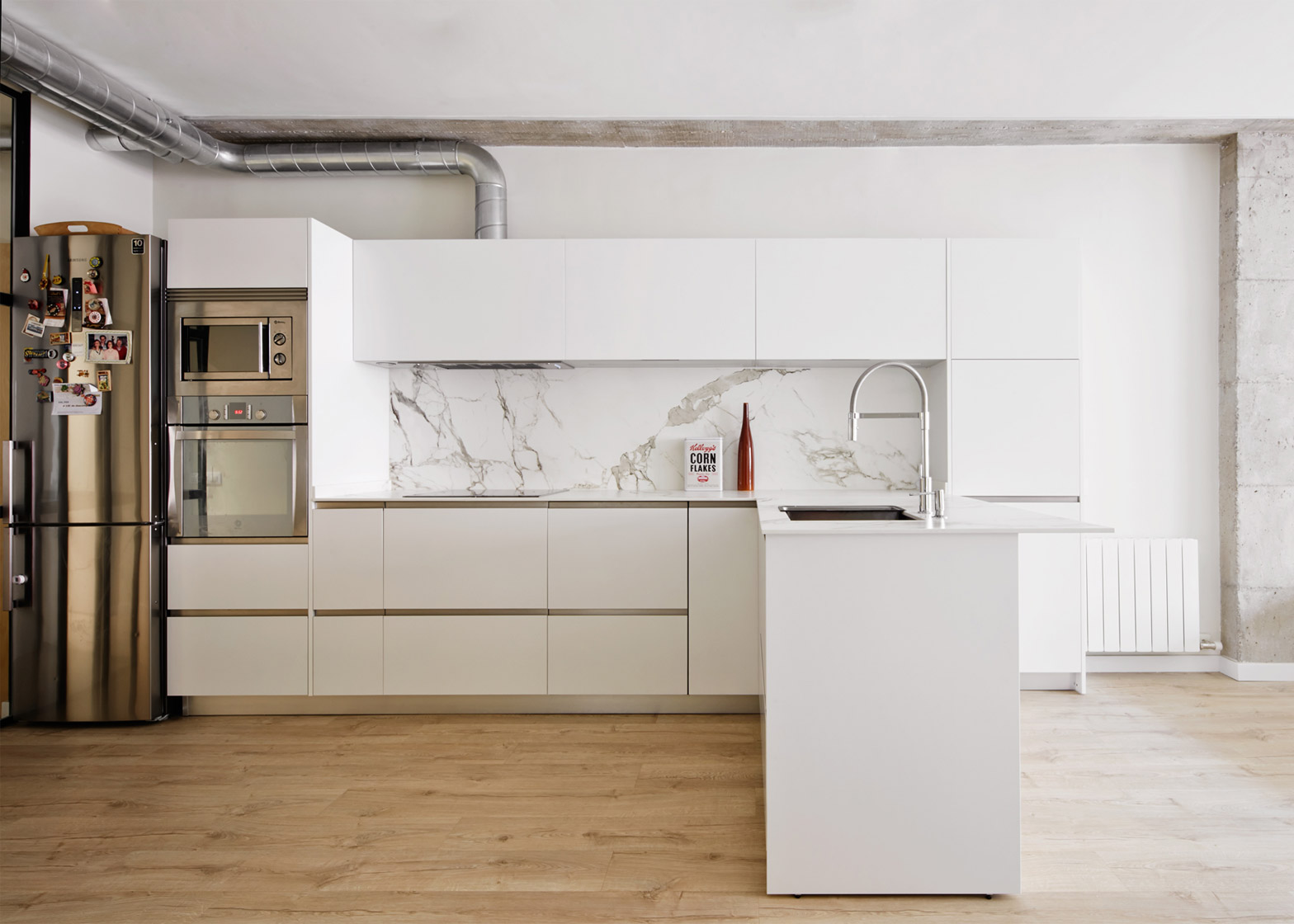Grey-veined marble is paired with raw concrete and exposed pipework in this Barcelona apartment, in which architect Raúl Sánchez has used angled walls to create visual breaks in the layout.
Sánchez and his studio RAS Arquitectura used angled walls to section up the 110-square-metre space, formerly used as an office. The bends in the walls help to create blind spots within the largely open-plan layout.
Corsega Apartment now contains two bedrooms, an open-plan living area and a bathroom designed to be used by more than one person at a time.
"Converting it into a dwelling required leveraging a geometric study to ensure the large and open spaces specified by the clients but at the same time implying and suggesting the position of each room without having to segregate them," said Sánchez.
Full-height glazing in the entrance hall allows light to filter through from the living space, but a 90 degree corner hides the kitchen from view.
A further 45 degree bend in the wall gives the lounge and dining area beyond further privacy.
"It is not a space that can be taken in all in one glance," explained Sánchez.
"First we see the kitchen – spacious and generous – comprising two Tetris-like arms of various depths and an island setting it apart from the contiguous living room space; exactly at this point the walls turn 45 degrees and insinuates a corridor sliding towards other rooms."
"The living room area is also designed in open layout but is likewise protected from view and enjoys a degree of privacy thanks to the spatial geometric play," he added.
A white breakfast bar extends across the space at the point where the wall angles, heightening the separation between kitchen and lounge.
The room is finished with bright white cabinetry and a pale marble splashback that contrast with areas of exposed concrete and metal pipework that give it an unfinished appearance.
The two bedrooms and bathroom are accessed though a vestibule in the centre of the plan. Open-backed shelving corresponds with shelving in the dining area to bring in natural light.
The bedrooms occupy a long, narrow strip and are connected by a sliding glass door, but distinguished by a change from pink to blue paintwork.
The glass doors allow light to filter through from a courtyard by the master bedroom into the children's room, and for the two spaces to be used as one to create a playroom.
The bathroom is segmented into three parts to provide areas for a double sink unit, two separate toilet stalls and a bath and shower zone.
"The result is a space which can be used comfortably by several people at the same time," explained the architect. "The bathroom is a dark and shiny world boasting a backlit mirror and ceilings."
"Every last detail of the construction has been given minute attention," he added. "The connection between metal elements always echo the 45-degree-angle pattern, even in the tiniest joins."
Raúl Sánchez used a similar process to partially separate rooms when he used curving pine partitions to convert the vaulted basement of a Barcelona house into a subterranean apartment.
Photography is by Jose Hevia.
Project credits:
Architecture: RAS Arquitectura
Engineering: Mares Ingenieros

